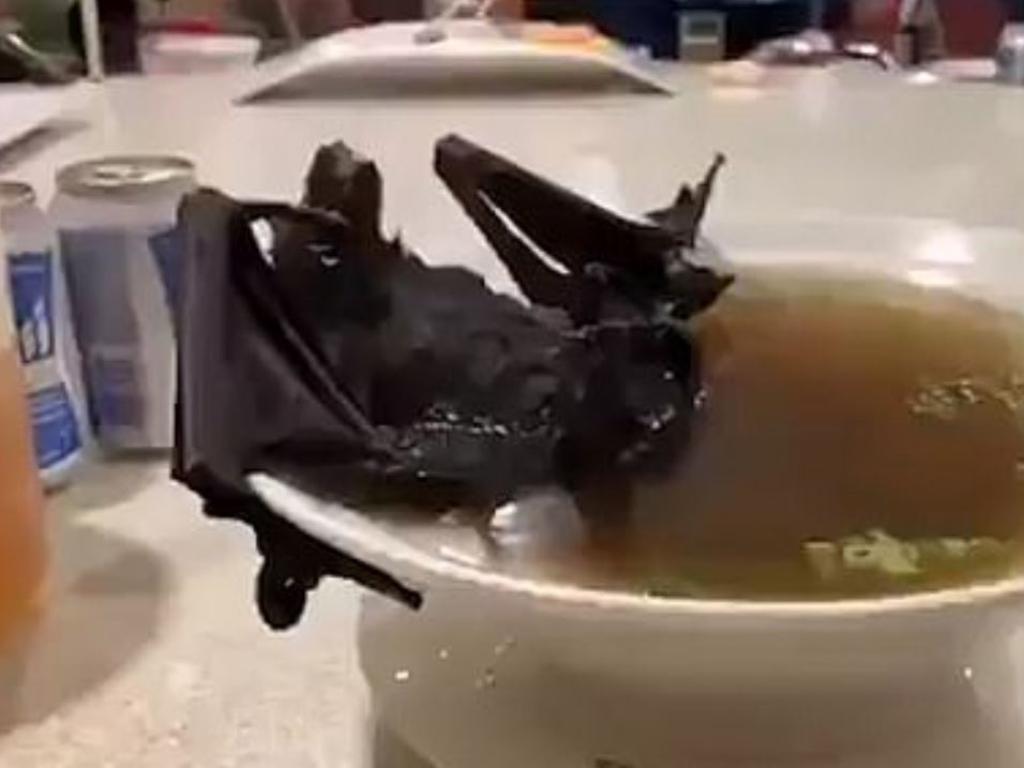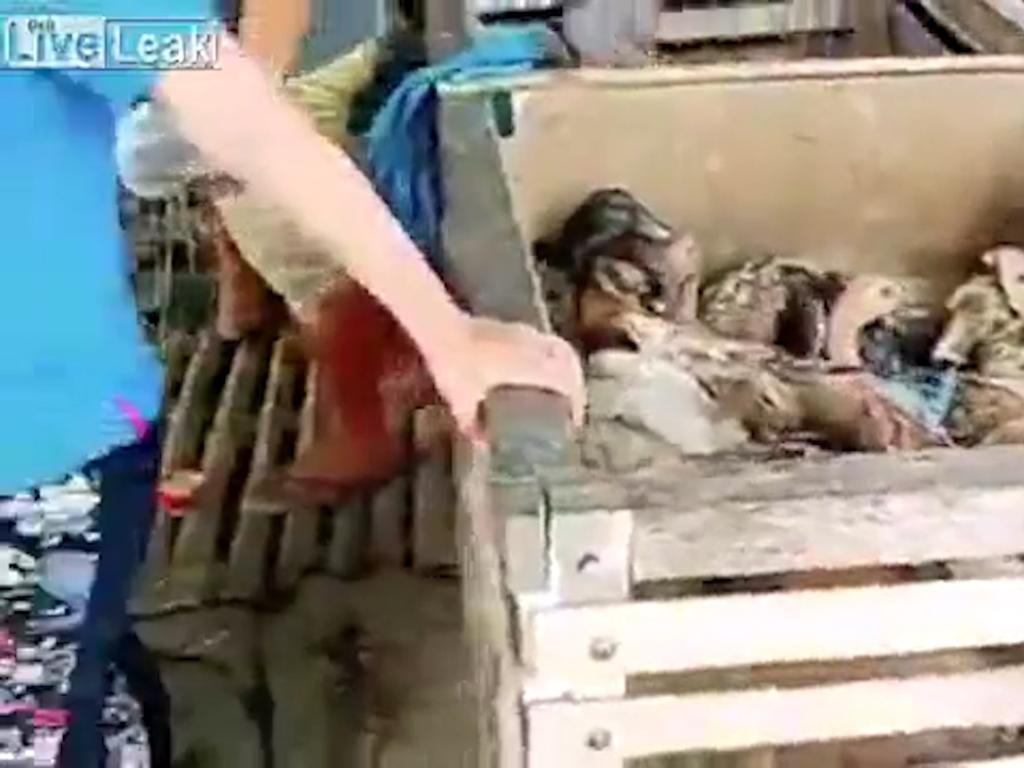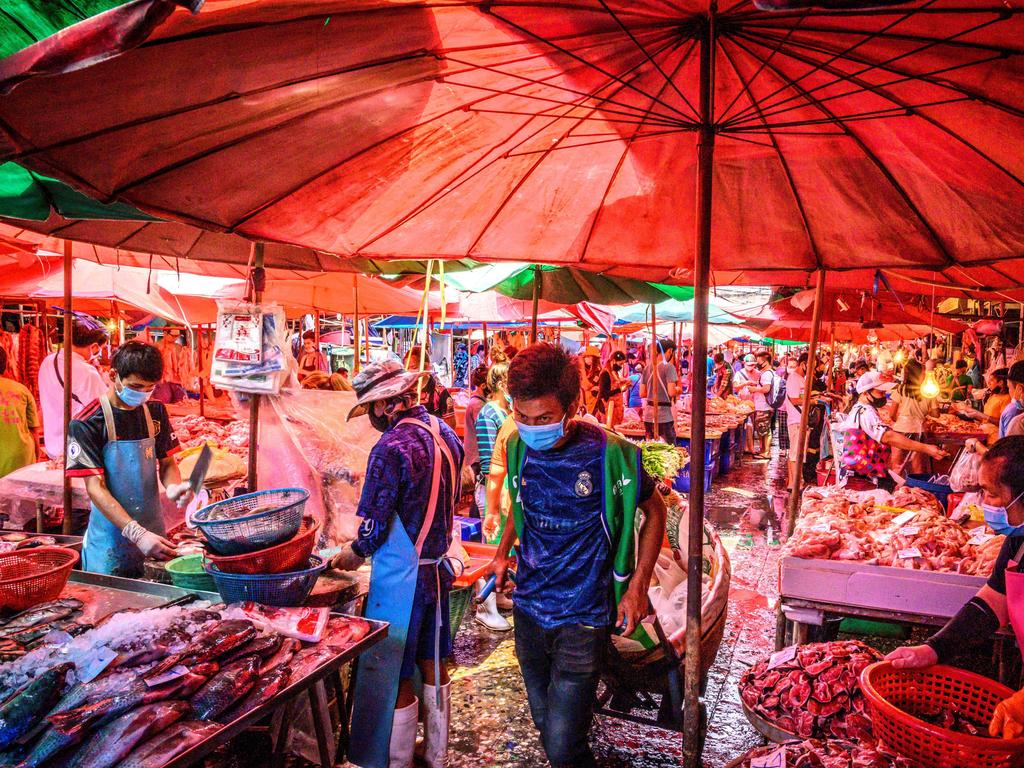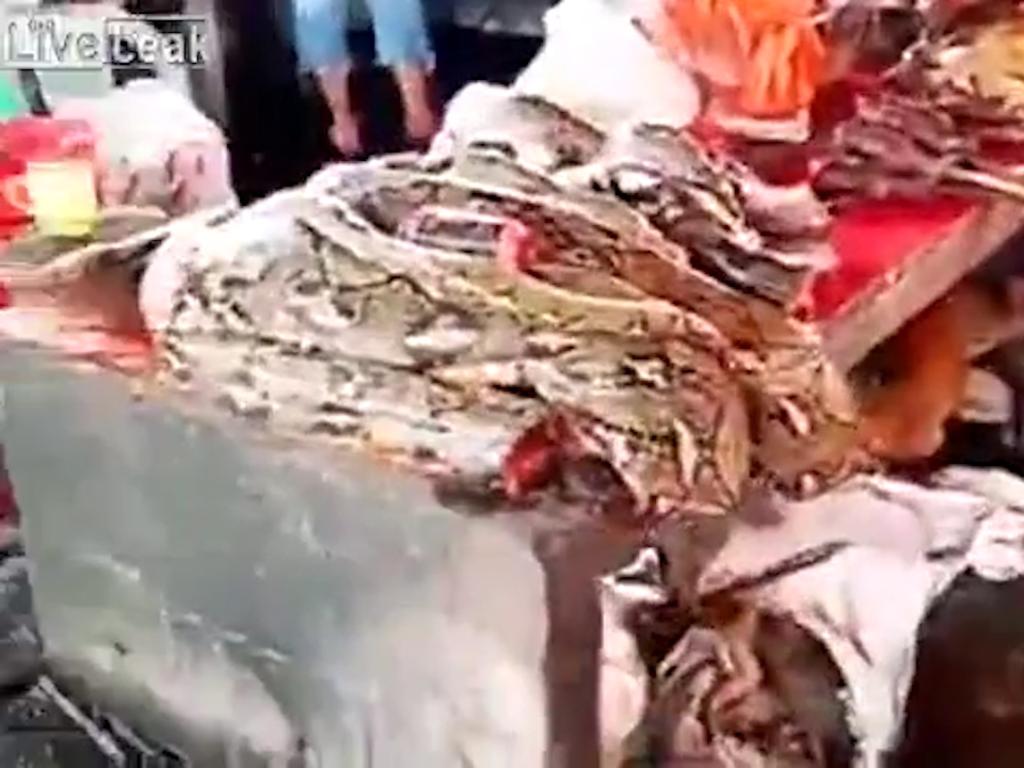Australia wants wet market probe as China faces backlash
Australia has called for international inspectors to go in and investigate wildlife wet markets as China faces scrutiny over what it knew before the COVID-19 pandemic erupted.

- Aussie COVID-19 tracing app: Seven unanswered questions
- COVID-19 stops Aussie parents getting surrogate babies
Australia has called for international inspectors to go in and investigate wildlife wet markets as China faces scrutiny over what it knew before the COVID-19 pandemic erupted.
Federal Agriculture Minister David Littleproud was part of a G20 agriculture ministers meeting where the future of markets was raised.
“We must learn from Covid-19 on how we better manage and mitigate both human and animal biosecurity risks, and to ignore wildlife wet markets in that assessment would be wrong,” he said.
“There are risks with wildlife wet markets and they could be as big a risk to our agricultural industries as they can be to public health, so we have to understand them better.
“The G20 of agriculture ministers have a responsibility to lead the way and draw on global experts and engage international organisations to rationally and methodically look at the many significant risks of wildlife wet markets.
“Our people should have confidence that the food they eat is safe. We owe it to our domestic population and our international markets.”
INSIDE CHINA’S WET MARKETS
They are known as China’s wet markets because of the melting ice preserving food and the wet floors constantly being washed to clean up blood from the butcher stalls, and they have been part of life for everyday Chinese for hundreds of years.
Most cities around the world have them but they are better known as fresh food or farmers’ markets selling vegetables, fruit, seafood and meat fresh straight from the growers to the public.
Until COVID-19 hit most people had never heard of the term wet market. And Chinese cultural experts are saying the public outcry over the reopening of China’s wet markets has not only focused attention on these traditional food shopping centres but brought into sharp focus the global confusion and misunderstanding of what wet markets are and how they operate.

Dr Deila Lin, a senior lecturer in Chinese Studies in the Sidney Myer Asia Centre at the University of Melbourne, said a lot of confusion comes from the mixing up of the terms wet market and wildlife market — they are not the same thing.
Dr Lin, who has lived in Wuhan for more than a decade, said the wet markets just sell fresh produce and the only live animals found are fish.
“There are no bats, or snakes or live animals,” Dr Lin said.
“Even the chickens and ducks that were once sold there, have been banned after the outbreak of bird flu.”
Expat Australians who have lived in China for decades have also said the same thing. They have never seen bats at the wet markets where they shop.
“A lot is lost in translation,” Dr Lin said.

There is trade in exotic species and wildlife and it usually operates from a completely separate location. Those animals are not found mixed with the produce at the wet markets, although some markets may have a separate corner where the wildlife is kept. It is understood this was not the case in Wuhan. Wildlife markets do operate in China and around the world, legally and often illegally, selling wild animals for meat, medicine or as domestic pets.

SPECULATION ABOUT WUHAN LAB
Earlier this year the Chinese Government moved to ban the consumption of wild animals to mitigate any future outbreaks of similar pandemics.
It has been reported in recent days that COVID-19 may have started in a laboratory in Wuhan where researchers were conducting viral infectious disease experiments, but there are also many early cases of the disease that were traced to a “wildlife market” in Wuhan.
It has been reported that the Chinese public health authorities identified the Huanan Seafood Wholesale market, which sold seafood and wild animals, as the origin of most early cases. The market was closed in January and has never reopened.

Dr Lin said the term “wet market” is also actually used in Hong Kong, but not usually in mainland China and that has also added to the confusion.
News Corp Australia visited the Graham Street wet market in Hong Kong’s Soho recently and it was a thriving, bustling strip selling everything from fresh tofu to whole pigs.
The market was teeming with an abundance of fresh fruit and vegetables, butcher stalls proudly displaying freshly slaughtered animals and live fish splashing in tubs of water.

Chinese consumers have long preferred fresh produce, preferring to make regular trips to the market rather than weekly supermarket shops.
For many, it’s a question of flavour, with many shoppers of the opinion that freshly slaughtered animals taste better than frozen meat.
But in recent years, wet markets have fallen out of favour — especially among younger consumers who are rebelling against the old ways — with the rise in popularity of online supermarkets and packaged meat.

WHY THEY CAN BE A HOTBED OF DISEASE
Dr Phil Cassey, from the University of Adelaide, says the term “wet market” applies to wholesale markets that sell fresh produce, and pointing out that not all wet markets deal with live animals.
“In Australia we have wet (food) markets in central (Sydney) and farmer’s markets. The difference is that in Australia we do not generally have bush meat markets selling harvested wildlife — with the exception of seafood, and some wild caught exotic game and native species,” he told News Corp Australia.
Dr Cassey, the director of the Centre for Applied Conservation science in the Department of Ecology and Evolutionary Biology, said the COVID-19 outbreak has been a ticking time-bomb, blaming “the destruction of the environment”.
“Every interaction we have had has been pushing towards an event like this,” he said.
Dr Cassey says markets where the coronavirus originated provide the greatest risk for infection as they have a high density of diverse animal species and a lack of hygiene standards, making them a hotbed for the emergence of and transmission of zoonotic — animal to human — diseases.

Zoonotic diseases, he says, are naturally occurring diseases that circulate in non-human animals, but subsequently transfer, or spill over, into humans.
“Approximately two-thirds of all human diseases have a zoonotic origin. The emergence of zoonotic disease is strongly linked to human activities that bring wildlife, domestic animals, and humans into increasingly intense contact,” he says. (This includes the destruction of natural areas, intensive agriculture and the hunting, trade and consuming of high-risk wildlife such as bats and pangolins.)
Dr Cassey says such markets are rife across South-East Asia and parts of Europe and not all of the animals are bought for consumption.

MORE NEWS
Prepare for post-virus spending splurge
Surprising effect of coronavirus
Patience with lockdown rules wears thin in the US
How the cruise industry will bounce back
“Animals are sold for a variety of reasons as well, something that has been increasing in popularity has been the live songbird trade where the people buy the birds for singing competitions. Not all animals are destined for the table — every market will be different.”
He believes that when restrictions around the pandemic eventually ease, countries will need to look at regulations and overhaul the way animals are treated and sold.
“We need to rebalance our relationship with the environment while also safeguarding long-term human wellbeing,” he says. “This includes, preventing illegal harvesting and unsustainable trade of wildlife, as well as unhygienic and high-stress use of domestic animals.”
Dr Cassey’s team specialises in research on pangolins, the animals thought by some to be the host animal that has helped the virus jump from bats to humans.
“Pangolins are considered tasty so they are used for their meat, their scales are used in traditional medicine,” said Dr Cassey.
“That’s a real shame. We are working really hard to provide evidence-based studies for moving away from that. The scales have no medical or nutritional value.

“It’s very sad. Historically, they were used for the US leather trade such as cowboy boots.”
Renowned Australian bioethicist and animal welfare advocate Peter Singer says the coronavirus pandemic provides a unique opportunity to reflect on the global repercussions of using animals for food.
“What we ought to gain is an awareness of the fact that this virus, like other recent viruses like SARS and swine flu and avian influenza, have come from the consumption of animals,” said the 73-year-old author of the 1975 classic work Animal Liberation.
The Princetown university professor, speaking from his home city of Melbourne, said he is sceptical that the right lessons will be learned from the outbreak.
The academic said he hoped the community would emerge from the pandemic with a greater sense of global solidarity.
“We’re all in this together, it’s one world and the things that happen in other countries have very drastic effects all over the world.”
Originally published as Australia wants wet market probe as China faces backlash


